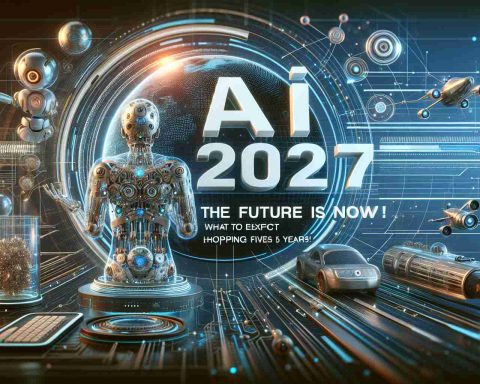The Impact of Artificial Intelligence on Automobiles
In a world driven by innovation and efficiency, the automotive industry stands out with its complex supply chains and mass production. Embracing Artificial Intelligence (AI) has become imperative for automotive companies seeking to enhance performance, reduce costs, and stay ahead of the curve. AI serves as a powerful tool in processing vast data sets, learning from information, and making insightful decisions that go beyond traditional human capabilities.
Enhancing Operational Excellence and Lean Six Sigma
AI significantly optimizes production processes by predicting maintenance needs, preventing downtime, and ensuring continuous improvement—a core principle of Lean Six Sigma. Through real-time data analysis, AI algorithms identify inefficiencies and recommend enhancements, reducing waste and boosting productivity.
Pioneering Safety and Ethical Practices
In the realm of safety, AI enhances predictive capabilities and detects potential hazards before they pose risks. For instance, AI-driven analysis can monitor and predict the wear and tear of vehicle parts, prompting proactive maintenance. In matters of ethics and legality, AI helps automotive companies navigate complex regulations by ensuring compliance with emissions standards, workplace safety, and labor laws.
Transforming Customer Experience
AI revolutionizes customer interaction and satisfaction through personalized services, predictive maintenance, and advanced vehicle technologies. AI-driven tools provide customers with real-time updates on their vehicle status and maintenance needs, significantly improving the ownership experience.
Human-AI Synergy for Progress
While AI introduces automation that can undertake tasks previously handled by humans, the goal is not to replace people but to enhance their abilities and effectiveness. For example, AI can handle repetitive tasks on the production line, allowing humans to focus on strategic activities that require creative thinking and problem-solving.
Seizing Opportunities and Addressing Challenges
AI opens doors for automotive companies to innovate rapidly, reduce costs, improve product quality and safety, and stay competitive in fast-evolving markets by enabling quicker responses to customer needs and market conditions. However, key threats include job displacement due to automation and ethical dilemmas arising from data misuse. Upholding data privacy and security is paramount for maintaining trust and compliance with legal standards.
Looking Ahead
Moving forward, companies must continue integrating AI into their operations while investing in their workforce to manage and collaborate effectively with AI technologies. Continuous learning and adaptation are crucial as AI evolves, ensuring that humans and AI systems collaborate efficiently to achieve common goals. Balancing technology implementation with ethical considerations and human development is essential for sustainable growth in the automotive industry’s AI-driven landscape.
Revolutionizing the Automotive Industry with AI: Unveiling New Horizons
As the automotive industry progresses into the digital era, the integration of Artificial Intelligence (AI) heralds a new chapter in innovation and transformation. Beyond the realms touched upon in the previous article, the intersection of AI and automobiles raises intriguing questions and unveils significant challenges for industry stakeholders.
Key Questions and Answers:
1. How can AI impact vehicle design and manufacturing processes?
AI contributes to streamlining design iterations, optimizing fuel efficiency, and enhancing structural integrity through simulations based on vast data sets. Manufacturers can harness AI to revolutionize the production line, minimize defects, and accelerate time-to-market.
2. What role does AI play in autonomous driving technology?
AI algorithms power autonomous vehicles by analyzing sensor data in real-time, making split-second decisions, and navigating complex traffic scenarios. The advancement of AI in self-driving cars poses questions regarding safety, liability, and regulatory frameworks.
Key Challenges and Controversies:
1. Data Privacy and Security:
The proliferation of AI in automobiles raises concerns about data privacy and cybersecurity vulnerabilities. Safeguarding sensitive information collected by AI systems from potential breaches and unauthorized access remains a paramount challenge for the industry.
2. Ethical Decision-making:
AI-driven vehicles may encounter ethical dilemmas in critical situations, such as choosing between passenger safety and pedestrian protection in unavoidable accidents. Addressing these moral quandaries and embedding ethical frameworks into AI algorithms pose significant challenges.
Advantages and Disadvantages:
Advantages:
– Enhanced Vehicle Safety: AI enables predictive maintenance, early fault detection, and adaptive safety systems, ultimately reducing accidents and enhancing driver and passenger safety.
– Personalized Services: AI-powered algorithms cater to individual preferences, creating tailored driving experiences and delivering personalized services such as navigation, entertainment, and comfort features.
Disadvantages:
– Job Displacement: Automation driven by AI may lead to workforce redundancies in traditional manufacturing roles, necessitating retraining and upskilling programs to mitigate job losses.
– Reliance on AI Systems: Over-dependence on AI for critical functions like autonomous driving poses risks during system failures or malfunctions, emphasizing the need for robust backup systems and fail-safes.
Related Links:
The Society of Automotive Engineers
Automotive World
















